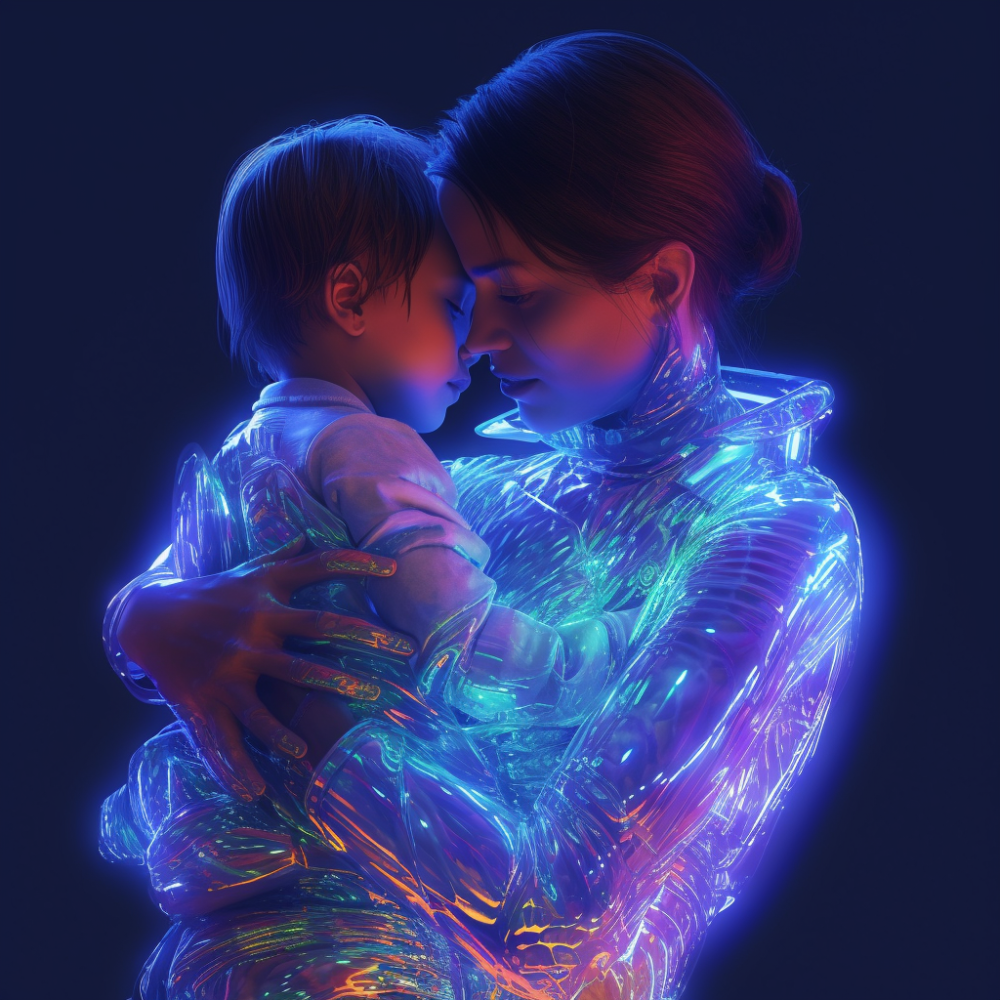As AI systems and chatbots are rapidly integrating into all aspects of our lives, it's already unthinkable to imagine life without them. Unlike the age of other technologies like the internet, which took years to become widespread, AI is rapidly transforming our world. As a millennial, I was born in the age of the internet and search engines, which significantly impacted our lives. Generation Z was born in the age of social networks, while Generation Alpha was one step ahead, growing up with early AI developments. Now, Generation Beta, the children born in the 2020s, will grow up in a world dominated by AI. The question is, how will they shape the future, and what will their thinking, education, learning, and interactions look like?
Imagine a world where knowledge is not only accessible but also generative. For Generation Beta, AI-driven voice assistants answer their questions, AI-generated stories entertain them, AI-created imaginary friends accompany them, and AI-based tools help with their homework. This world is not just a distant future; it's already unfolding.
New Thinking:
With generative AI at their fingertips, Generation Beta will have more options for comparison and evaluation. With unlimited answers and ideas, they will be able to develop more hypotheses and create more innovative concepts. This endless world of AI-generated knowledge will encourage them to think more broadly and critically.
Adapting to AI-Driven Education:

AI-generated image of a futuristic classroom.
Generation Beta's education will likely be significantly influenced by AI. Classrooms may evolve into personalized learning environments tailored to each student's needs, powered by AI-driven tools. They will have access to information and answers in the blink of an eye, even faster than search engines, leveling the playing field and promoting greater educational equity. While some may view this as a threat, this shift in education will encourage Generation Beta to explore new ways of learning, fostering creativity and independent thinking.
Redefining Social Interactions:
Generation Beta's social interactions may lean towards more artificial concepts. They might interact with AI-trained versions of themselves on social media or use automated responses in digital conversations. Imagine a child being friends with a real talking toy or their favorite cartoon character, creating a whole new level of engagement and companionship. These unique interactions could lead to innovative forms of communication, blending the boundaries between the real and the virtual, creating new possibilities for social connections and collaboration. At the same time, concerns about privacy, security, and the impact of such relationships on mental health and social development may arise, prompting a need for careful consideration and responsible implementation of these technologies.

AI and Coping with Loss:
As AI becomes an integral part of daily life, it may also affect how Generation Beta handles grief and loss. Immortal virtual versions of loved ones could help them cope with the absence of someone special. This new relationship dynamic could redefine the way they process emotions and maintain connections with those who have passed away.
Shaping the Workforce of the Future:
AI will transform the job market, eliminating many traditional jobs while creating countless new opportunities. For Generation Beta, creative thinking and working with AI-generated outputs will become increasingly important. They will need to adapt and invent novel ways to solve problems, embracing creativity and collaboration in the AI-driven workforce, contributing to a more inclusive and equitable economy.
So, what future awaits Generation Beta? Their unique blend of technological prowess and creative thinking will create a world of endless possibilities. As sociologists begin to study the next wave of young people, the impact of Generation Beta's choices and values will undoubtedly shape the future in ways we have yet to imagine. The fusion of AI and human creativity will open doors to unexplored territories, and Generation Beta will be the pioneers navigating this exciting new landscape.
